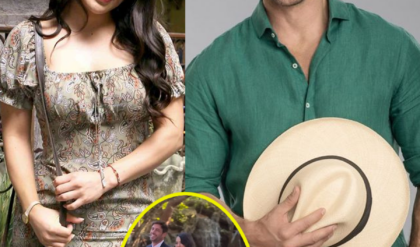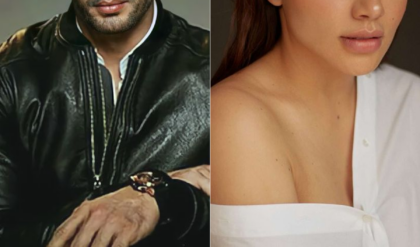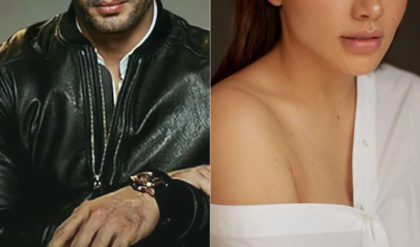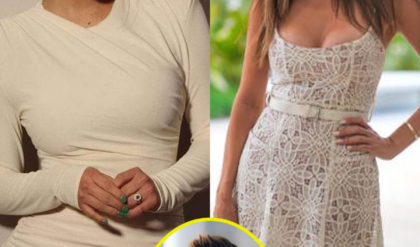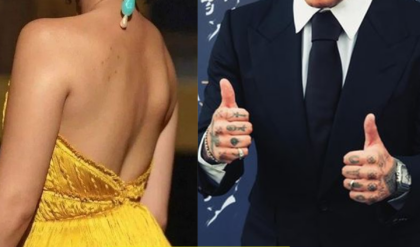The actress tells PEOPLE about her teen years in Baltimore selling crack cocaine — and the lessons she took with her to Hollywood
:max_bytes(150000):strip_icc():focal(749x0:751x2):format(webp)/PEOPLE_Jada-Pinkett-Smith_2-47d958c2836b42e795ca2c38567d9175.jpg)
Photo:Obidigbo Nzeribe
Jada Pinkett Smith has had quite a life. “Yeah, it could be a movie,” she agrees with a laugh. And the highs, lows, lower lows and higher highs are all in the pages of her gripping and honest new book, Worthy.
Now 52, Jada leaves no amount of detail to chance, opening up about her marriage to Will Smith, her struggle with mental health and suicidal ideation, the infamous 2022 Oscars, and her childhood. It’s there, she says, that lessons were learned — and not learned.
And it’s when she would eventually lead a double life: promising performer at school, rising drug dealer on the streets.
“When you aren’t the priority of your parents,” Jada tells PEOPLE in this week’s issue, “you don’t know how to be a priority to yourself. I had parents who were addicted to drugs.”
Jada Pinkett Smith Breaks Silence on Marriage, Oscar Slap and Her Path to ‘Self-Acceptance’ (Exclusive)
Jada was raised between different homes. Sometimes with her maternal grandmother — who would become a guiding force — and sometimes with her mother, Adrienne Banfield-Norris, a heroin addict who would get sober and become a mainstay in her and her children’s lives and on the set of Red Table Talk. Her father, who would at times be violent, would come in and out of her life. (Robsol Pinkett Jr. died in 2010.)
“Not having a healthy foundation, as I would come to find out way into my adulthood, had some really strong effects in regard to how I saw myself,” she says.
But she’s able to see her childhood clearly today. “Our parents are not responsible for our wholeness,” she shares. “But I didn’t know how to create healthy boundaries, to create healthy relationships.”
:max_bytes(150000):strip_icc():focal(574x0:576x2):format(webp)/PEOPLE_Jada-Pinkett-Smith_1-9fd21f697e8c4c0ebd67e3803251cf46.jpg)
Obidigbo Nzeribe
Her late grandmother Marion Banfield provided pivotal lessons. “My grandmother thought that it was very important that I be able to relate to anyone, and she felt as though I needed to be well-rounded in order to do that,” Jada says. “So whether it was through reading books or hobbies, understanding different kinds of religion, she wanted me to always have an entry point to be able to have a common ground with another person.”
She also taught her how to keep a house. “A pristine house, that’s for sure! I know how to clean some floorboards and how to clean a bathroom,” says Jada. “She also taught me never to depend on a man. For pleasure or for money. She’s like, ‘Your pleasure belongs to you.’ And ‘do not depend on a man for finances.’”
“I knew that anything that I needed was something I needed to provide for,” Jada says. “I decided to sell drugs.”
“Growing up, the drug dealers were the ones that had affluence,” shares Jada. “That’s what we readily saw as success. And so for me, considering my circumstances at the time, my mother was not doing well. She was a high-functioning heroin addict. We didn’t have the things that we should have. The home we lived in was not taken care of.”
Jada worked several jobs, “legit jobs,” starting at 12. “Having money in my pocket was a must,” she says. She was a telemarketer, she worked at The Gap. “I just wanted financial freedom,” says Jada.
Never miss a story — sign up for PEOPLE’s free daily newsletter to stay up-to-date on the best of what PEOPLE has to offer, from juicy celebrity news to compelling human interest stories.
:max_bytes(150000):strip_icc():focal(599x0:601x2):format(webp)/Jada-Pinkett-Smith_worthy-506c61e582ba4edfa9888c500ade3964.jpg)
There was also the “what if” fears, she says. “What if something happens to my mother? What if she doesn’t come home one night? Either overdosed, arrested, whatever. And so, I decided to sell drugs. I decided to sell crack cocaine.”
Everyone, she says, was dealing with the drug epidemic in Baltimore in the 1980s. “Everybody,” Jada says. “Drugs were going to touch you, period. You could use them, you could sell them, but there was no being in an environment like that and drugs not touch you. And I’m not saying that it’s right, of course, now being in a whole different mindset. But when you’re living in a war zone and you just thinking about survival, I wasn’t trying to use drugs. I surely wasn’t going to be a drug dealer’s girlfriend. But I wanted money so that I could be independent. I wanted to take care of myself.”
She laughs at her ambition and hubris. “I thought I was going to be a queen pin, for sure,” she remembers. “You can get caught up in the scenery. I was rollin’ with some really high rollers at the time. That’s a whole ‘nother Jada, a whole ‘nother Jada that would chase somebody down the alley with a switchblade because they stole $700. Or the Jada that would sell crack cocaine and then get set up and two dudes come in with nine-millimeters and she gets a gun put to her head.”
For more on Jada Pinkett Smith, pick up the latest issue of PEOPLE, on newsstands Friday.
:max_bytes(150000):strip_icc():focal(599x0:601x2):format(webp)/PEOPLE_Jada-Pinkett-Smith_cover-362d170bfb624d2fafb30c8fa64e346a.jpg)
Obidigbo Nzeribe
She turns serious. “That was my solution at that particular time to survive,” says Jada. “And it really helped me. But it put me into a lot of danger and I hurt a lot of people along the way.”
Jada says that at times she thought she was doing good. “We really felt like there were times where we were being so charitable,” she shares. “Whether it was like we’d see a single mom or an elderly woman in the market and we’d pay for their groceries. Or we’re in a restaurant, we’re going to pay for somebody’s meal or what have you. And you really think that you’re helping without recognizing that you are part of the problem as well.”
But, Jada did learn what she says became valuable lessons. “The number one thing that I feel like the Baltimore Streets taught me,” Jada says, “was fearlessness and being able to detect danger. And I brought that to Hollywood in 1990.”
Her new memoir, Worthy, hits bookshelves everywhere Oct. 17.
If you or someone you know is struggling with substance abuse, please contact the SAMHSA helpline at 1-800-662-HELP.
News
¿Shakira y Karol G Habrían Dejado de Ser Amigas por Culpa de Gerard Piqué?-nhung
Shakira y Karol G /FB: Shakira y Karol G Durante el pasado fin de semana, se llevó a cabo la final de la ‘Copa América 2024’ entre la selección de Argentina y Colombia. El evento estuvo galardonado por grandes artistas como Shakira y…
Jordi Martín Revela la Verdad Sobre el Supuesto Nuevo Galán de Shakira: ¿Es Antonio de la Rúa, Su Ex, el Hombre Detrás de los Rumores?-nhung
Archivo OMG y Clasos Hace unos días, Shakira fue captada en plena cena con un misterioso hombre en Miami. Las imágenes, obtenidas por el portal TMZ, muestran a Shakira y su acompañante disfrutando de una cena privada en el exclusivo hotel Lido Bayside….
Confirman que JLo y Ben Affleck “Ya Firmaron los Papeles” de Divorcio: La Confirmación Oficial de la Separación Tras los Rumores y Especulaciones-nhung
Jennifer Lopez y Ben Affleck ya habrían firmado el divorcio /Avalon Recientemente una fuente confirmó a Daily Mail que Jennifer Lopez y Ben Affleck ya firmaron el divorcio después de tantos meses de especulaciones. Aunque la pareja trató de salvar su matrimonio al…
Adamari López Asegura que No Volvería a Tener una Relación con un Hombre Más Joven que Ella: Reflexiones sobre sus Preferencias en el Amor y Relaciones Futuras-nhung
Adamari López /Instagram: @adamarilopez Adamari López reveló sus experiencias amorosas con sus exparejas. Recordemos que años atrás mantuvo una polémica relación con Luis Fonsi, de quien se separó en 2010. Después, la conductora tuvo una relación con Toni Costa, cuya ruptura ocurrió…
La foto de Ángela Aguilar con poca ropa que desmiente los rumores sobre su embarazo con Nodal: Una declaración clara contra las especulaciones-nhung
Angela Aguilar, reconocida cantante mexicana y parte de la famosa dinastía Aguilar, ha sido objeto de rumores que sugieren que está embarazada del también cantante Christian Nodal. Estos rumores se originaron en las redes sociales, donde algunos usuarios comenzaron a…
Inesperada Confesión de Migbelis Castellano a Sus Compañeros en Univisión: Revelaciones Sorprendentes Que Dejan a Todos Boquiabiertos-nhung
Migbelis Castellanos, exreina de belleza y actual presentadora de Univisión, sorprendió a sus compañeros de trabajo con una confesión inesperada que ha generado gran atención en los medios. Durante una conversación en uno de los programas de la cadena, la…
End of content
No more pages to load







